Contempt / Mepris, Le (1963)
“I have to know why you despise me!”
|
Synopsis: |
|
Genres, Themes, Actors, and Directors:
Response to Peary’s Review: … “as does Fritz Lang (playing himself), the philosophical director of Palance’s travesty.” Peary does comment that “since The Odyssey is, in part, about a wife, Penelope, who waits 20 years for her husband to return from his journeys, Godard is obviously making a comment on the fickleness of lovers today — particularly women”; however, I think that’s far too reductive of a stance to take. Indeed, I was surprised and impressed by how much subtlety there is in Bardot’s performance and character: Her Camille is an insecure yet savvy woman who understands that the men around her put value almost exclusively on her beauty and sexual availability, and she refuses to simply play this game without protest. Visually speaking, the movie is bright and colorful — and as always, Godard makes interesting use of space, unique sets, and montage. Georges Delerue’s score is also integral to this film; indeed, the orchestral theme song is so instantly recognizable that I was surprised to learn it’s part of the original score for this movie rather than a classical piece. Notable Performances, Qualities, and Moments: Must See? Categories
(Listed in 1001 Movies You Must See Before You Die) Links: |
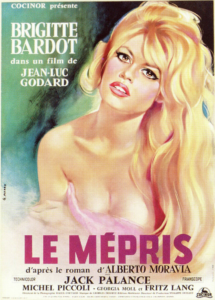

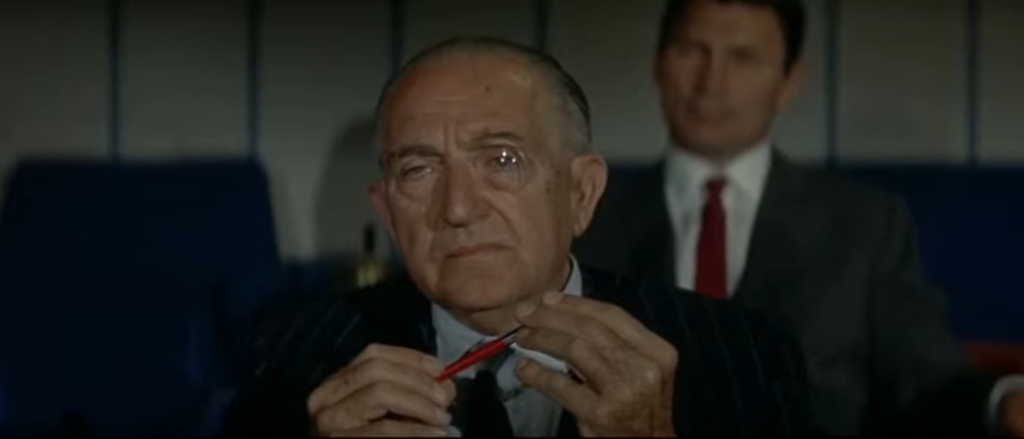
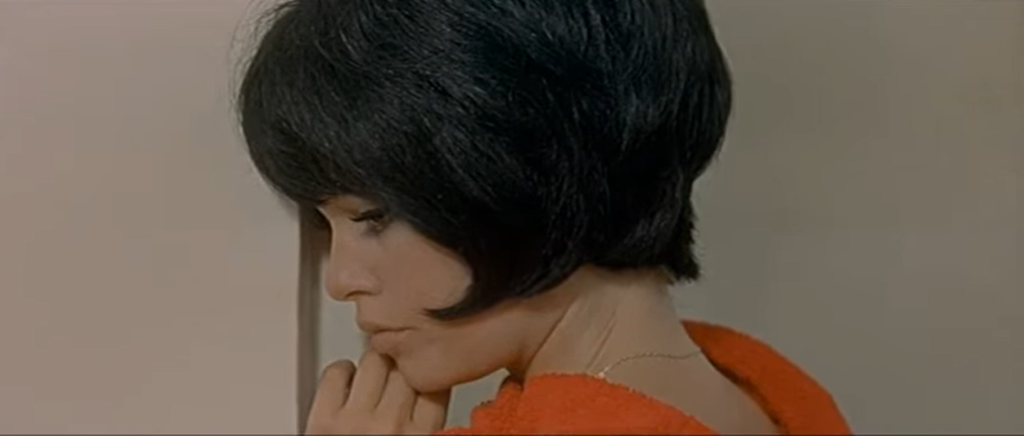
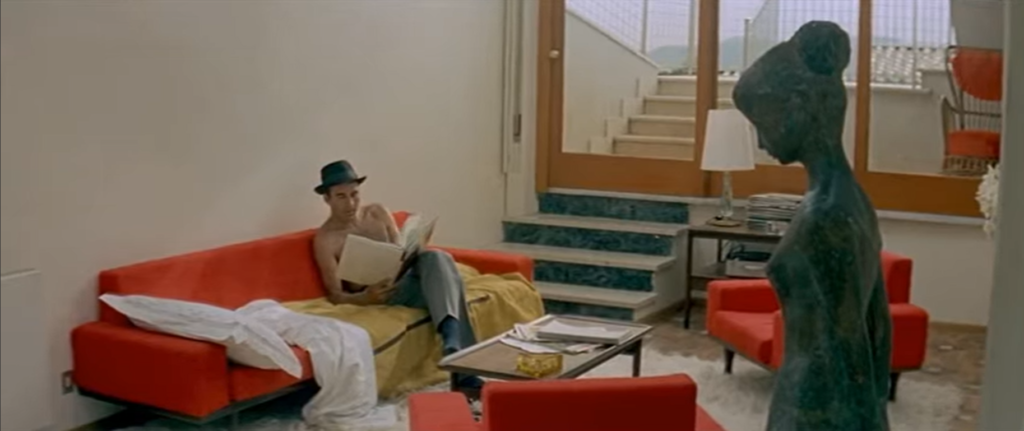

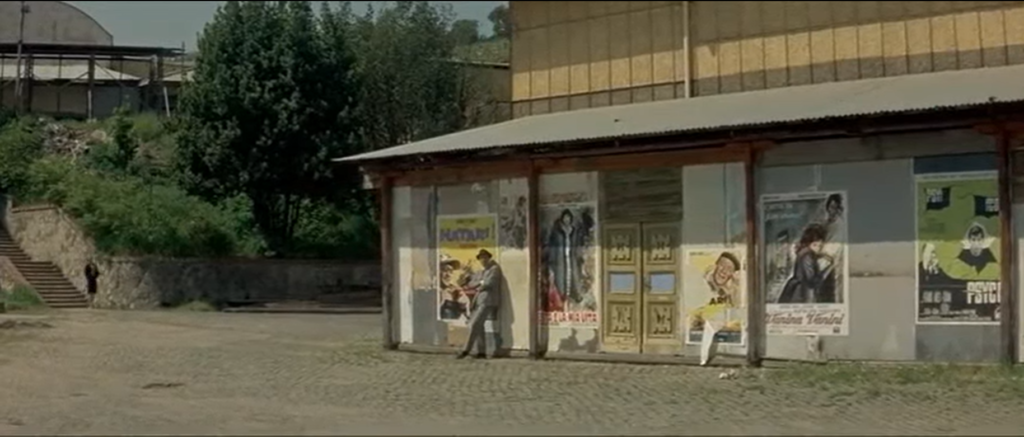
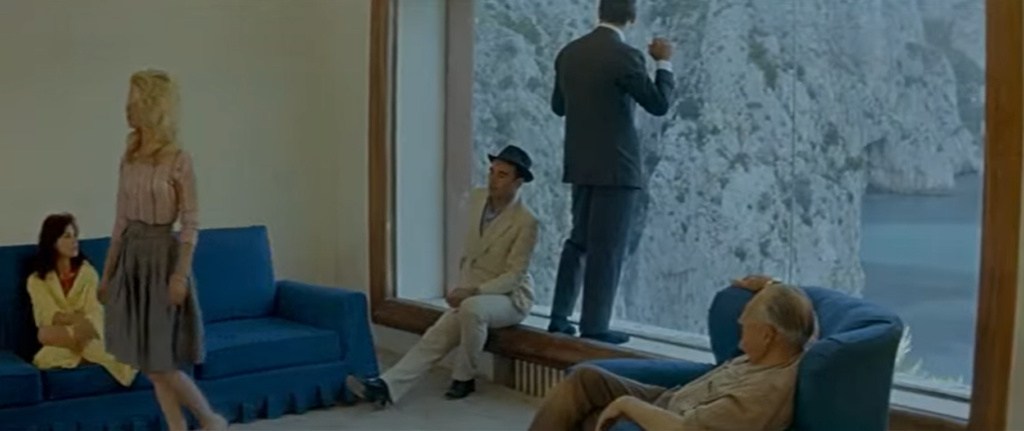
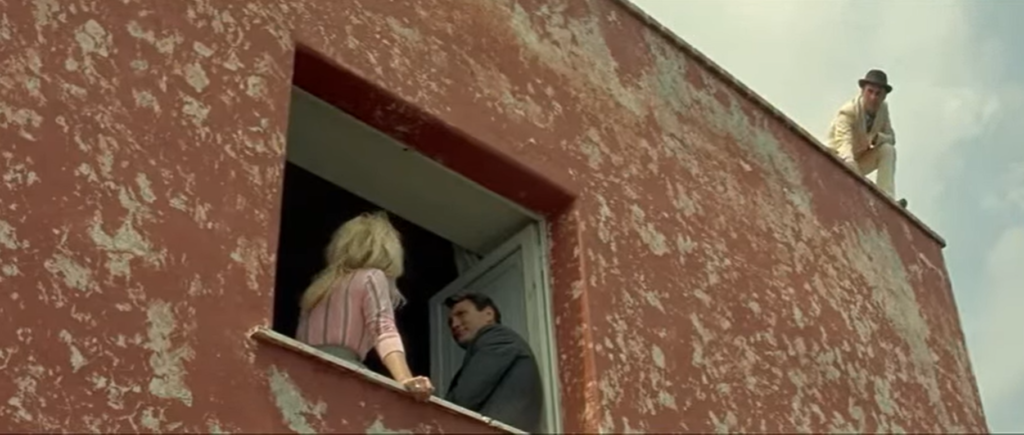
4 thoughts on “Contempt / Mepris, Le (1963)”
Skip this snooze-o-rama.
Things start off pretentiously enough with Bardot – lying prone, naked – asking Piccoli if he likes the various parts of her body. (“Do you like my ankles?… Do you like my shoulders?… Do you like my breasts?…). …Jesus.
Things don’t perk up from there. Films about ‘behind-the-scenes in the movie business’ hardly ever work because they are inherently non-dramatic. ‘8 1/2’ succeeds largely because Fellini more or less makes a circus out of the subject. Altman’s ‘The Player’ largely works because there is a murder-mystery thrown in.
But this is tedious – a film that focuses on the tiresome verbal back-and-forth of a writer and his basically bored wife. Halfway-through, things get so dull that Godard suddenly, inexplicably shows us Bardot’s butt a few more times.
Composer Delerue comes up with a simple melody for almost the entirety of his score. It’s pretty – but not after it has more or less played incessantly.
Bardot’s character is largely incomprehensible (and/or seems to have communication problems); the mix of Piccoli’s character with the story of the ‘Odyssey’ seems nonsensical; Palance seems lost; Lang appears to be lounging.
At one point, Bardot says, “I find this all so idiotic.” … Exactly. And where’s the contempt?! Sure, there’s lots of bickering – and a tiny shadow of more than that – but there’s nothing venomous enough (not believably, anyway) to warrant the film’s title.
The convenient, climactic ending (the penultimate scene) is one of those drama-for-its-own-sake tag-ons.
I tried rewatching this a month or two ago, and was similarly turned off by that opening sequence (which it turns out was added upon requirement by the producer to get some more nudity in the pic; I’m sure this is also why we see more later).
The movie is slow-going but I was intrigued enough by Godard’s visual style and choices to stick with it. Also, after watching Palance’s secretary (Giorgia Moll) being forced to serve as translator for every single statement being made between the various (male) characters — and then being bent over and having her back used as a table — I was good and ready to see Bardot’s character pushing back. These men clearly have all the financial and cultural control in their world, but they couldn’t do any of it without women, and they know it.
If the viewer, like yourself, focuses in on a specific/specifics like this one:
“These men clearly have all the financial and cultural control in their world, but they couldn’t do any of it without women, and they know it.”
– some worth can be found (though the worth may be more in the viewer than in Godard). I was looking at it as an overall film and find it tiresome. (This was my third and probably final watch.) But then, I find very little of value in Godard – for the most part. So there’s that.
“…the worth may be more in the viewer than in Godard.” Well, thank you very much. 😉 I’ll accept that compliment.
I am similarly very torn about Godard, and plan to (most likely) fully shred most of his later work; Peary lists… God help us… 23 of his titles in GFTFF. In this early work, I still find enough of his creativity and love of cinema at work to be intrigued.
(Plus, this is completely gauche and should not be spread widely at risk of my reputation, but unnecessarily slow-moving foreign language films can easily be… fast-forwarded… and still retain the visual impact and gist.)